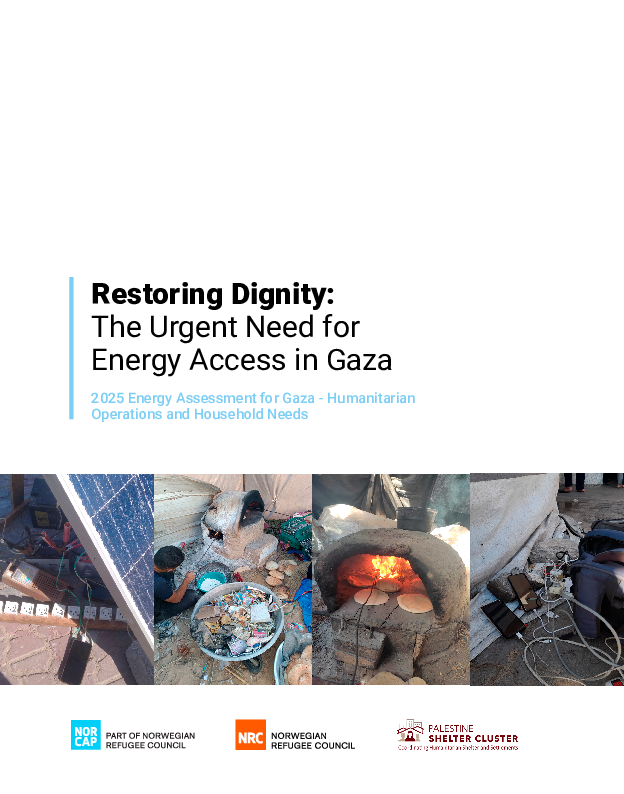Palestine
Restoring Dignity: The Urgent Need for Energy Access in Gaza
Gaza’s energy crisis threatens lives and humanitarian response
A new report from Gaza reveals the devastating impact that the absence of reliable energy has on daily life and essential services. In a context where every hour can mean the difference between life and death, the report calls for urgent international action to restore access to fuel, electricity, and clean cooking.
The report, Restoring Dignity: The Urgent Need for Energy Access in Gaza, based on an assessment by the Palestine Shelter Cluster and NORCAP shows how energy is one of the invisible threads that hold together family life and essential services—powering kitchens, hospitals, water pumps, food preparation, and humanitarian logistics. Without it, even the most basic forms of assistance become impossible.
“In Gaza, energy is not about convenience—it’s about survival,” says Benedicte Giæver, Executive Director of NORCAP.
“When families can’t cook, when hospitals go dark and when water pumps stop running, the consequences are immediate and devastating. The international community must prioritise energy in all humanitarian efforts.”
The assessment draws on data gathered by Shelter Cluster members through field surveys across Gaza, conducted under extremely challenging conditions. It highlights how energy access underpins key aspects of humanitarian response and daily life:
- Healthcare: Without power, ventilators, incubators, and dialysis machines cannot function. Cold chains for vaccines break down, and emergency surgeries are delayed or cancelled.
- Water and sanitation: 70 per cent of households lack reliable access to clean water. Desalination and sewage treatment plants depend on electricity to operate.
- Food security: Families are forced to burn plastic and debris to cook, exposing themselves to toxic fumes. Food aid is limited to canned goods due to lack of cooking fuel.
- Shelter and protection: In overcrowded shelters, the absence of lighting increases risks of gender-based violence and limits mobility after dark.
- Humanitarian operations: Fuel shortages and power outages disrupt aid delivery, communications, and coordination across all sectors.
“We cannot talk about restoring dignity or rebuilding lives without addressing energy,” says Benedicte Giæver.
“Families are living in makeshift shelters without light, warmth, or the ability to cook. Energy is what allows people to live with safety and dignity—it’s not optional, it’s essential.”

